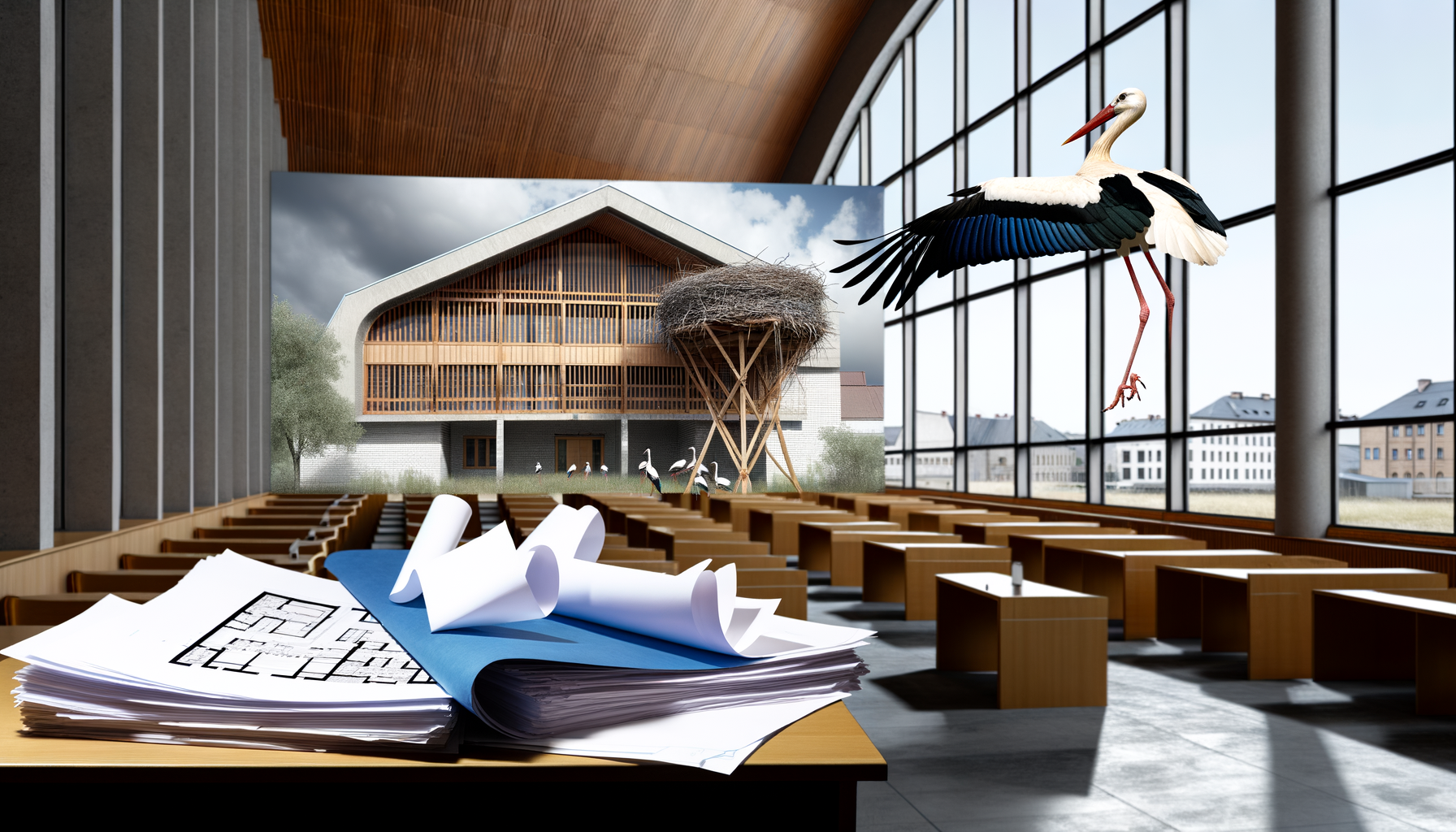The ongoing legal proceedings surrounding the Stork Nest project have become a symbol of the complex intersection between politics, business, and law in the Czech Republic. The legal uncertainty and protracted nature of the court battle have not only captured public interest but also left a significant mark on discussions surrounding the Czech legal system鈥檚 ability to handle cases involving prominent political figures.
The Stork Nest project, formally known as 膶ap铆 Hn铆zdo, initially emerged as a farmhouse and conference center project. The controversy began when it was revealed that Andrej Babi拧, former Prime Minister and leader of the ANO party, was allegedly involved in misappropriating European Union funds meant for small businesses. The funds were reportedly transferred to the Stork Nest project, which resulted in several years of legal battles.
Origins of the Controversy
The saga of the Stork Nest project dates back to 2008, when Agrofer, a conglomerate owned by Andrej Babi拧, was alleged to have secured nearly 50 million Czech crowns in EU subsidies under the guise of a small business. This ignited suspicions and triggered a detailed investigation into the eligibility of the project to qualify for such funds. Given its association with one of the country鈥檚 most influential businessmen and politicians, the case quickly escalated into a national spectacle.
Despite several attempts to clear his name, Babi拧 faced numerous allegations regarding his involvement in the misuse of funds. The complexity of the case was compounded by its inception during a period of significant political transformation in the Czech Republic, adding layers of intrigue to an already convoluted situation.
Legal Proceedings
The court proceedings have been lengthy and charged with political undertones. Numerous hearings were held to determine whether the Stork Nest project was, in fact, misclassified to fraudulently obtain EU subsidies. The courtroom has seen a parade of witnesses, including business associates, family members, and political opponents, each providing their perspectives on the intricacies of the case.
As the trial progressed, every development was scrutinized by the media and the public. The case has been widely debated across the country, with opinions sharply divided along political and ideological lines. Babi拧 himself has been a polarizing figure, often seen as a manifestation of the clash between political interests and legal righteousness.
Implications on Czech Politics
The protracted court battle has broader implications beyond the Stork Nest project itself. It has raised questions about the independence of the Czech judiciary and the challenges faced when high-profile figures are involved in legal disputes. Moreover, the controversy has fed into larger discussions about transparency and accountability in the political sphere.
For Babi拧, the case has had critical repercussions on his political career. While he has consistently denied any wrongdoing, affirming that the accusations are politically motivated, the shadow of the Stork Nest case has been difficult to shake off. It has become a talking point for opponents, overshadowing his tenure as prime minister and influencing public perception.
The case has also impacted the broader ANO party, which has had to navigate the political fallout. As differing views within the party surface, the unity and future trajectory of the political group remain uncertain. The drawn-out legal proceedings have become a rallying point for both supporters and detractors, highlighting the polarizing effect of the case.
The European Perspective
Given the involvement of EU subsidies in the case, the court battle has inevitably drawn attention from European institutions. It has prompted discussions about the effectiveness of EU oversight on subsidy distribution and the mechanisms in place to curb potential misuse.
The broader European audience critiques have echoed the concerns of Czech citizens, emphasizing the need for stricter regulatory frameworks and transparency in the handling of taxpayer funds. The case serves as a cautionary tale for EU governance, underscoring the necessity of rigorous checks and balances.
Where the Case Currently Stands
As it stands, the Stork Nest case remains unresolved, with legal and political observers eagerly awaiting the final verdict. The court鈥檚 decision is set to have far-reaching consequences, potentially affecting future dealings between political figures and business entities in the Czech Republic.
Despite the ongoing legal proceedings, Andrej Babi拧 continues to assert his innocence, persisting in his public engagements and business activities. However, with each passing courtroom session, the case鈥檚 conclusion seems both imminent and elusive, a testament to the intricate tapestry of politics and law that defines the modern Czech state.
The outcome of the Stork Nest project trial will not only dictate the trajectory of Babi拧鈥檚 political life but also set a precedent for similar cases in the future. As the Czech Republic navigates these challenging waters, the broader implications for democracy, legal integrity, and governance linger prominently on the horizon.
The extended court battle over the Stork Nest project serves as a crucial litmus test for the Czech judicial system, challenging it to maintain impartiality and uphold justice amid turbulent political landscapes. It is a narrative that continues to unfold, holding the promise of shaping the country鈥檚 socio-political discourse for years to come.
